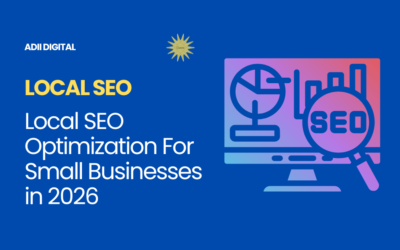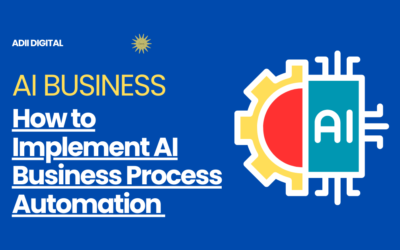Email marketing today has become one of the most effective methods of reaching out to new clients and sustaining relationships with existing consultants. Considering a proper plan, an audience is reached directly, and a proper value is brought that ultimately converts a prospect into a faithful customer. Here you will find all the information you need about email marketing for consultants, the top tactics, ideas, and actions for success.
Why Does Matter Email Marketing for Consultants
In email marketing for consultants can communicate with potential clients and also notify the uncovered audience. It is cheaper than other means of marketing and advertising, reaches the target group with the most precision, and allows for the sharing of ideas and information with interested audiences. Here are some key benefits of email marketing for consultants:
Direct Communication: We can target sending our messages directly to our audience which makes it easier for us to gain their trust.
Cost-Effective: This type of marketing is more effective than paid ads as it has high returns on investment, and a marketer doesn’t need a large budget.
Nurture Relationships: With regular contact, your brand remains relevant by being the first that audiences will go to when they need consulting services.
Drive Traffic: If some of this content is on your Web site, blog, or other location where you want to demonstrate your subject knowledge, then the e-mails will bring people to visit it.
1. Build a Quality Email List
One of the most valuable ingredients of effective and efficient e-mail marketing is a good list of e-mail addresses. This means gathering basic information from people with actual interests in your consulting business.
Lead Magnet: Use a freebie, including an ebook, checklist, or an industry report in exchange for their emails. It must offer relevant knowledge about your consultancy so that the audience understands its benefits.
Website Signup Forms: You can use your web pages to place the email sign-up links, more so on the frequently viewed pages. Don’t forget to add a persuasive click here button such as ‘Subscribe to our weekly newsletter’ or ‘Sign up for free consulting advice in your inbox.
Don’t miss: How To Keyword Optimization For Content Marketing In 2024
Networking Events: Gather people’s emails that you come across at conferences, workshops, or other professional occasions. Send a personalized email also, to further the discussion on the topic.
2. Why do I Need to Segment My Audience?
That is why audience segmentation is important – to guarantee your emails are both appropriate and impactful. By using segmentation, you can break up your email list into more manageable categories according to particular standards, like:
Industry: When you establish a connection with your clients, analyze your audiences, then divide it according to industry to get your message through with more relevancy.
Stage in Buyer’s Journey: New subscribers should not be considered together with those who are more inclined to purchase. This enables you to get to share the right content relevant to the stage they are in regarding the decision-making process.
Client Needs: Determine the level of need or disadvantage of your clients and then segment. For instance, one group may require consulting services on leadership issues, while the other needs consultation on issues to do with marketing strategies.
3. Incorporate Information Which Will Be Helpful for Your Targeted Visitors
Thus, as a consultant, the content you send should be rich in your expertise and be genuinely useful in the eyes of your subscribers. The following are some content kinds that are effective:
Educational Content: Post articles with tips, instructional posts, or enlightening videos that will give your audience tips they can apply. This goes a long way toward making you an expert in your field or at least an authority in your niche.
Case Studies: Share testimonies of clients who have benefited from your service. Ask them to describe the difficulties that occurred during their project how you resolved it and the actual outcomes of the work done. Case studies are useful in developing the confidence of potential clients.
Tips and Insights: Share recommendations that your audience can use at the moment. For example, if you are a management consultant, offer articles on time management or productivity enhancement tips.
Don’t miss: The Power Of Social Campaigns In Branding In 2024
News and Updates: Do this for your audience particularly when you are in a position of advising or coaching them with insights on the current trends or any changes that are happening within the market that you operate in. It also serves to show the reader/client that you are current and therefore your information is experienced and reliable.
4. Select the Best Email Marketing Service
If you will be managing email marketing campaigns, you need tools for this. Software like Mailchimp, ConvertKit, or Zoho Campaigns can enable you to collect and organize your email list, set up and run a campaign, and measure success.
Automation: Take advantage of the automation tools to create campaigns that will initiate emails. For instance, develop an email sequence for a brand new subscription in which you tell the subscribers who you are, and how you can assist them.
Analytics: Metrics such as open rates, click-through rates, and conversions should be checked to see how well your emails are doing and what needs to be changed.
5. Create Compelling Subject Titles and Body Copies
The subject line is an important part of every email campaign and is the primary reason your subscribers will or will not open your message. To boost your open rates:
Be Clear and Enticing: Choose subject lines that inform the reader what to expect right from the subject line as a general rule. For instance, “Leadership Issues” or “5 Proven Practices to Boost Your Business Success”
How to Address Them.
Personalize: Add the recipient’s name to the subject line, and body, or they can have a friendly greeting at the top of the email. For instance, “John, here is how you can increase effectiveness; To a layman, any of the following;
In the email content itself:
Keep It Simple: No use of complicated terminologies, but whenever possible use simple English. Avoid using very many technical terms and be to the point.
Provide Value: Always provide value in every email – information, advice, or something to think about.
Don’t miss: How To Find SEO Errors On Your Website In 2024
Include a Call to Action (CTA): We should have a precise idea about any new email that we write. Regardless of the action you want to see readers take, whether they are ordering an appointment, downloading a guide, or reading a blog post, include a CTA.
6. Plan Your Email Campaigns
To be certain that your marketing stays on track using email, then plan your campaigns. Create a content calendar to schedule your emails, such as:
Weekly or Monthly Newsletter: Communicate the industry news, useful information, and changes and developments about your services.
Follow-Up Emails: Once your lead downloads your lead magnet, engage and nurture him/her with subsequent emails; finally offering him/her an opportunity for a consultation.
Re-engagement Campaigns: Certainly, if certain subscribers have not interacted with you for some time, then a re-engagement email is the best way to remind them of the value you offer. For example, “We miss you! What’s happening now to these consultants?
7. Build Trust with Social Proof
With social proof to guide potential clients, they can assess the value your company’s services are going to provide them. Post captions that contain testimonies from satisfied clients, success stories, and certifications.
Client Testimonials: You must also include a short testimonial in one of the sections of your email. This could probably be a testimonial from a group of clients thanking you for helping them solve all their consulting problems or a single client expressing the kind of assistance they received from your consulting firm.
Don’t miss: Why Is Technical SEO Important For Websites In 2024
Case Studies: Cross link to full case studies and demonstrate how you went about it including the kind of outcomes that were achieved.
8. Measures and Controls
It is made very clear by numerous sources that email marketing is never a one-time kind of affair. To see which e-mails are effective, cut through, or ineffective, make use of analytics. Track metrics like:
Open Rate: The number of people who have viewed or opened your email out of the total number. If the open rate is low then it might be time to change the subject line of the newsletter.
Click-Through Rate (CTR): Tracking or monitoring of the activity of your audience after they have opened your email or clicked on your link. If you find CTR low, have a professional graphic design after ensuring that your Call to Action is persuasive.
Conversions: The quantities of pals who made the ideal action, which you wanted them to do, such as setting a consultation. This assists a business in determining the general performance of its advertisements.
Email marketing for consultants Tips
Be Consistent: That means sending correspondence as frequently as you can, but at the same time, do not flood your subscribers’ mail. For most consultants, having a weekly or bi-weekly mail is appropriate Most of the consultants use a weekly or bi-weekly mail.
Test and Optimize: A/B test on the subject line, the content of the email, and the CTA to know what should be used on your audience.
Personalize Where Possible: Personalization can contribute towards engagement. Always use your subscribers’ names and if possible their problems that you need to solve or issues that have to be addressed.
Use Visuals Wisely: You may add images to the body of the email but ensure the received email will still look professional if the recipient does not display images.
A Final Review of Email Marketing For Consultants
The advantages of email marketing for consultants to reach your audience, present your content, and expand a consultant’s operations cannot be overstated. When you have a solid email listing of people you know are interested in what you offer, when you offer them quality content and consistently nurture the relationship, this is how you use email marketing to sell and turn leads into clients.
Remember, consistency, personalizing, and finally, always bringing something of more value to the subscriber than what they could otherwise gain for themselves will truly create the desired success. Appropriately, email marketing will complement a strong tool in your consulting business development strategy.



